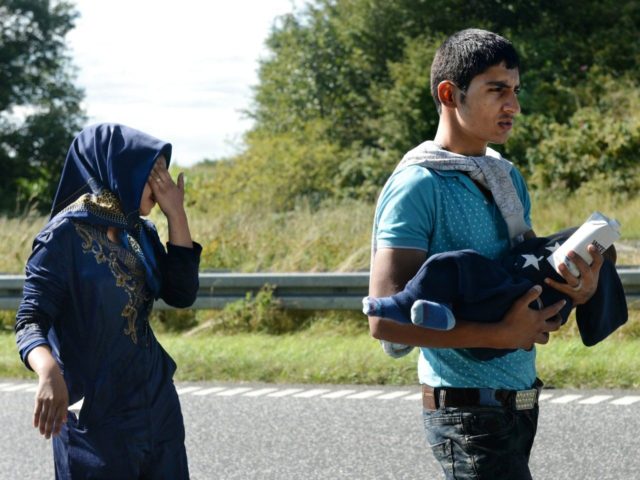The proportion of babies born to mothers with an immigrant background in Denmark has risen dramatically in ten years, largely because of Syrian arrivals.
Last year, 61,614 children were born in the northern European nation – 21.6 per cent of them (or one in five) to a mother who is an immigrant or a descendant of one. The vast majority, 18.5 per cent, were born to first generation migrant women.
Just a decade ago in 2007, the proportion was 13.5 per cent, figures from Statistics Denmark, reported by Kristeligt Dagblad, reveal.
The influx of migrants from Syria is one of the biggest factors in the huge rise, the paper claims, with Syrian mothers making up the second largest nationality group in the statistic after Danish, with Turkish in third place.
Demographic changes of this nature pose numerous social and financial challenges for Danish society, claimed population researcher and professor Poul Christian Matthiesen.
He said non-Western migrants are generally a financial burden and he expects such non-Western immigration to Denmark and Europe to continue.
“The economic burden for society from non-Western immigrants and their descendants adds up to 15-20 billion kroner [£1.8-2.3 billion] per year. That is the equivalent of one percent of GNP,” Mr. Matthiesen told the newspaper.
Mr. Matthiesen explained that society was making a loss due to the “difference between what [immigrants] contribute to society and what they receive in the form of grants and education”.
“The other problem is purely with respect to culture,” he added, “especially for parts of the Muslim population, who have a different view of relations between men and women, freedom of expression, and to what extent, for example, the Quran must have an impact on how society is organised, while Denmark is a secular society where the Parliament decides things without the use of holy writings.”
Last month, Denmark’s parliament passed a controversial resolution stating that Danes should not become minorities in Danish communities, as figures revealed the migrant and migrant-descended population is now a majority in Brøndby Strand and Odense.

COMMENTS
Please let us know if you're having issues with commenting.